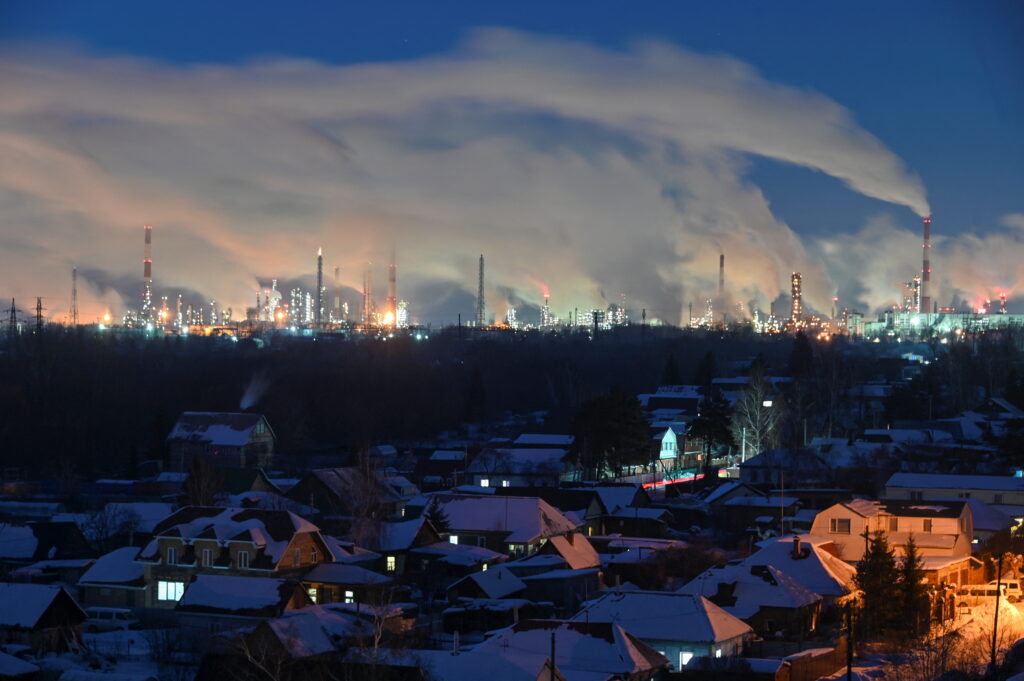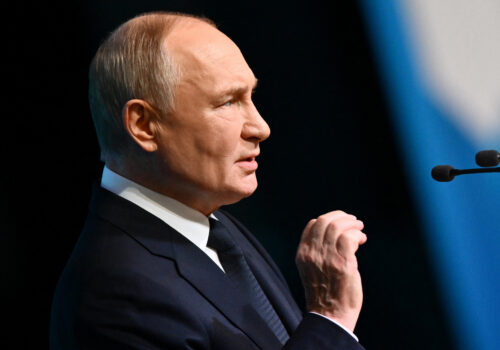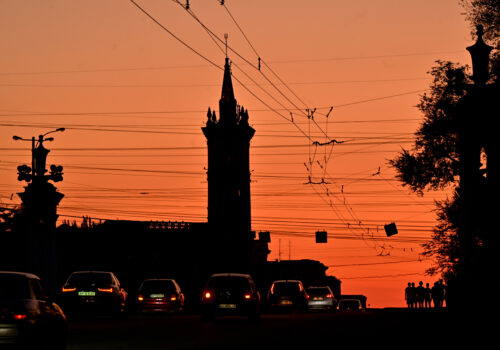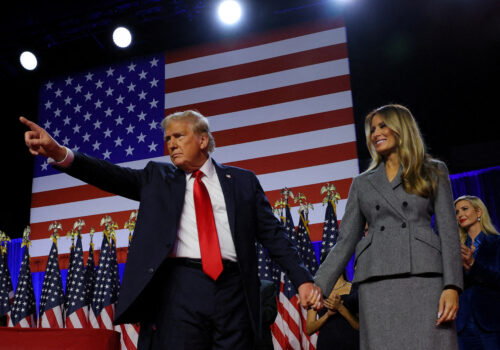The full-scale Russian invasion of Ukraine is now approaching the three-year mark, with no end in sight to a war that is widely recognized as the largest European conflict since World War II. So far, the Western response to the invasion has focused on providing military aid to Ukraine while imposing economic costs on Russia. This approach has clearly failed to produce the desired effect of ending the war, and requires significant strengthening if it is to prove effective.
Russia’s ability to sustain military operations depends largely on revenues generated by the country’s energy exports. However, due to Russia’s significant share of global oil and gas markets, Western leaders have been reluctant to impose comprehensive bans on Russian energy exports amid concerns that this could lead to price spikes and global economic instability.
As a compromise, the West has allowed Russia to continue oil and gas sales while attempting to cap the amount of income the Kremlin can receive. While this approach is well intentioned, it has proved difficult to implement in practice and has produced limited results. In order to undermine Putin’s war machine, the West needs to impose additional restrictions while also exploring ways to improve implementation.
The importance of energy exports to the Russian economy is well documented. In 2023, for example, oil and gas revenues accounted for more than one-third of Russia’s federal budget. As the third anniversary of the full-scale invasion draws near, there are now mounting indications that Russia’s economy is under strain. To curb rampant inflation, Russia’s Central Bank recently raised interest rates to 21 percent. The growing costs of the war and the damage done by sanctions measures are adding to these pressures. If energy exports were further curtailed, Russia’s war effort could be severely impacted, with Vladimir Putin forced to choose between sustaining the invasion or avoiding economic collapse.
Stay updated
As the world watches the Russian invasion of Ukraine unfold, UkraineAlert delivers the best Atlantic Council expert insight and analysis on Ukraine twice a week directly to your inbox.
Since the onset of Russia’s full-scale invasion in February 2022, the most significant measure imposed on Russian energy exports has been the price cap. This step was intended to limit Russian revenues from oil sales without disrupting global supply by restricting the price Russia received per barrel. However, it has become apparent that the effectiveness of the price cap depends heavily on enforcement and targeting.
Moscow has been able to bypass Western restrictions by selling to major clients like China and India. To aid in this process, the Kremlin has developed a network of around 1,400 tankers operating outside of Western oversight. This is often referred to as Russia’s “shadow fleet.” Addressing the challenges created by Russia’s ability to navigate maritime restrictions will require considerable creativity and determination.
The tankers used by Russia are often registered with shell companies in countries with limited transparency, making it difficult to trace ownership and enforce sanctions. Oil is often also transshipped via third countries, where additional companies help to conceal the origin of the cargo. This lack of transparency, combined with uncoordinated global sanctions enforcement, complicates efforts to target Putin’s shadow fleet.
One option would be to sanction more ships directly. At present, only a handful of tankers from the shadow fleet are under international sanctions. If transporting Russian oil incurred sanctions on individual vessels, many ship owners may become reluctant to continue participating. The passage of tankers through the Black Sea and Baltic Sea could also be legitimately challenged on environmental grounds.
Additional steps could include introducing secondary sanctions targeting key Russian energy industry companies such as Gazprombank. This could potentially discourage many of Russia’s main energy customers in China and India. While some secondary sanctions are already in place, extending existing measures to include financial service providers in Russia could prove particularly effective. To maximize impact, Western countries could also look into the possibility of blacklisting potential intermediary financial institutions that facilitate Russian transactions.
Eurasia Center events

When it comes to enforcing sanctions, Western governments consistently find themselves one step behind the Kremlin and are regularly forced to respond to Russia’s latest circumvention tactics. Secondary sanctions can certainly help limit Russia’s maneuverability, but further steps are needed. Streamlined decision-making processes and more comprehensive implementation could significantly tighten today’s sanctions regime and reduce the gaps that Russia currently exploits.
While a number of formats are already in place to facilitate cooperation between countries engaged in sanctioning Russia, it may be worth exploring the establishment of a dedicated sanctions coordination hub that could improve the agility and efficiency of sanctions measures. A new grouping of this kind could enhance communication among participating countries, allowing for sanctions to be developed, refined, coordinated, and implemented without delay. Closer cooperation would also make it easier to identify and target financial institutions and companies that facilitate indirect trade with Russia.
Establishing an effective international hub to coordinate sanctions against Russia would require considerable political will from all participating nations. It may need to be created within an existing framework such as the G7 group of nations or the European Union. The obvious model would be the Ukraine Defense Contact Group, which features more than fifty countries and helps coordinate military aid to Ukraine. If greater cooperation in the sanctions sphere could be achieved, it may prove a crucial step toward ensuring swift and effective responses to Russia’s evasion tactics.
There can be little doubt that fresh approaches are needed in order to increase the pressure on Russia’s wartime economy. The Kremlin has proven itself highly skilled at circumventing sanctions, while Western policymakers have struggled to close loopholes or impose costs on Moscow’s enablers. By introducing additional sanctions on Russia’s economically vital energy industry and intensifying cooperation between sanctions partners, the West can undermine Vladimir Putin’s ability to wage war while also strengthening the global order against further acts of international aggression.
Oleksiy Zagorodnyuk is a Kyiv-based independent researcher focusing on Russia’s wartime economy.
Further reading
The views expressed in UkraineAlert are solely those of the authors and do not necessarily reflect the views of the Atlantic Council, its staff, or its supporters.

The Eurasia Center’s mission is to enhance transatlantic cooperation in promoting stability, democratic values and prosperity in Eurasia, from Eastern Europe and Turkey in the West to the Caucasus, Russia and Central Asia in the East.
Follow us on social media
and support our work
Image: Flue gas and steam rise out of chimneys and smokestacks of an oil refinery during sunset on a frosty day in the Siberian city of Omsk, Russia. February 8, 2023. (REUTERS/Alexey Malgavko)




